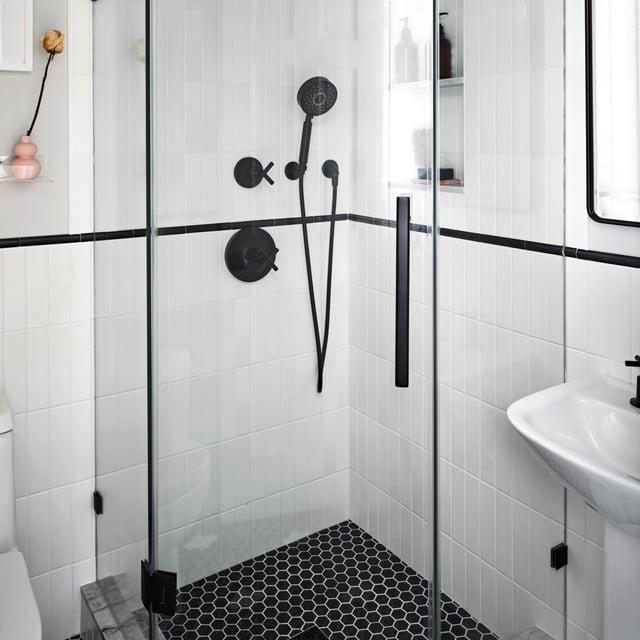
Contractors
Half Bathroom to Full Conversion: Costs, Permits & Designs
08.02.2025

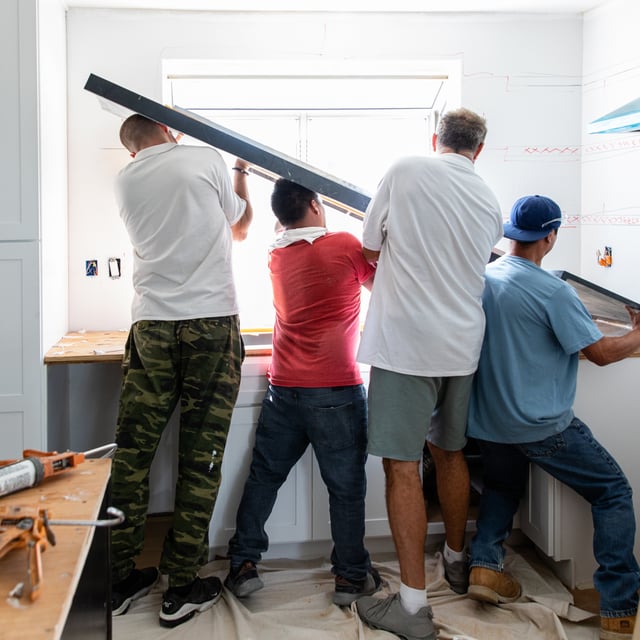
In This Article
If you’re thinking about selling your home, you might be wondering, "Is it worth renovating first?" A renovation can help you increase the value of your home, attract more potential buyers, and potentially speed up the sale process. But renovations also come with time and financial investments that not every homeowner wants to take on. Here's a guide to help you weigh your options and determine which, if any, renovations make sense before putting your home on the market.
Let's start with the pros and cons of each approach. Selling a home as-is can be appealing because you skip the hassle of renovations entirely. This approach works if your property is already in good shape or if you're not in a position to invest in upgrades. Buyers looking for a fixer-upper may appreciate an as-is property, as they'll be able to personalize it to their liking. But keep in mind that an as-is home may limit your buyer pool, potentially resulting in lower offers and a longer time on the market.
On the other hand, renovating key areas in your home before selling can make it more appealing and may lead to a quicker sale at a higher price. Even small updates like a fresh coat of paint or new lighting can give your home a refreshed look. If you're willing to invest in bigger renovations, targeting spaces like the kitchen, bathrooms, or the exterior can make a noticeable difference in market appeal.
Not all renovations are created equal when it comes to selling. Some projects yield better returns than others, so let's dive into the areas where remodeling can make a real impact.
Bathrooms are a significant selling point for buyers, and a bathroom remodel can provide an impressive return on investment. If your bathrooms are dated, consider a refresh that includes new fixtures, updated flooring, and a modern vanity. Even small changes like a new mirror, lighting, and a fresh coat of paint can make the space feel more welcoming and contemporary. Buyers appreciate a bathroom that feels clean, functional, and up-to-date.
The kitchen is often the heart of the home, so it's no surprise that a kitchen remodel is one of the most impactful updates you can make. You don't have to go for a full-blown luxury kitchen remodel—small updates like replacing outdated countertops, upgrading appliances, and refinishing cabinets can make a huge difference. Even new hardware on cabinets can give the kitchen a refreshed look without breaking the bank. If you're considering a bigger investment, an open-concept layout or adding an island can also appeal to buyers who want a spacious and functional kitchen.
If you have an unfinished or underutilized basement, converting it into a usable space can add significant value. A finished basement can serve as a family room, guest suite, or even a home office—especially appealing to today's remote workers. Be sure to consider waterproofing and adequate insulation to create a comfortable and appealing environment. Buyers love a bonus space that feels like an extension of the main living areas rather than just an unfinished afterthought.
Similar to basements, attics can be overlooked spaces that offer a lot of potential. Transforming an attic into a cozy bedroom, office, or recreational space can be a smart investment, particularly in areas where square footage is at a premium. Be sure to add proper insulation, consider ventilation, and install windows if possible to make the space bright and inviting. An attic conversion can add functional space to your home and give buyers more flexibility with the layout.
A new roof is a major investment, but it can pay off when selling. A sturdy, well-maintained roof reassures buyers that they won't have to deal with leaks or costly repairs anytime soon. If your roof has seen better days, replacing it could improve your home's curb appeal and provide a solid selling point. Buyers want peace of mind when it comes to big-ticket items, and a new roof can be a strong incentive to make an offer.
A new garage door might not seem like a priority, but it actually has one of the highest returns on investment of any home improvement. A clean, modern, and functional garage door can elevate the appearance of your home's exterior and boost curb appeal. Since it's a relatively low-cost upgrade, this simple change can make your home look more polished and well-cared-for, making it an easy win.
First impressions matter, and exterior siding plays a huge role in your home's curb appeal. If your siding is looking worn or outdated, replacing it with new siding can instantly transform your home's appearance. Vinyl, fiber cement, or wood are popular options, and choosing a color that complements your surroundings can make your home feel inviting and well-maintained. Buyers are drawn to homes that look good from the outside, so investing in new siding can be worth it.
An outdated or inefficient HVAC system can be a major red flag for buyers. A new, energy-efficient heating and cooling system can appeal to buyers who want lower utility bills and a more comfortable home environment. Plus, having an upgraded HVAC system shows that you've taken care of the property, which can instill confidence in potential buyers.
Once you've decided which renovations to pursue, it's time to find the right professionals for the job. Finding a qualified, trustworthy contractor is essential to ensure the project runs smoothly and stays within budget. Here are some tips for finding the right remodeling contractor.
When it comes to choosing the right contractor, it's all about doing your homework. Sure, it can feel a bit overwhelming at first, but taking time to evaluate a few key factors can make the difference between a smooth, successful project and one filled with unexpected hiccups. These factors will help you narrow down your options and find a contractor who not only fits your budget but also gets your vision and can deliver quality work. Let's dive into what you should look for to make the best choice.
First, let's talk about experience—because it matters. You want a contractor who's done the kind of renovation you're planning. If you're upgrading a bathroom, for example, a contractor who specializes in bathroom remodels will know all the ins and outs, from the best moisture-resistant materials to picking stylish, functional fixtures. If it's a kitchen reno, find someone who understands the importance of layout and can handle everything from cabinets to countertops to appliances.
Also, check that they're licensed, bonded, and insured. This is huge. Licensing means they're officially qualified, bonding protects you financially if something goes sideways, and insurance means you're not on the hook if an accident happens on your property. Don't hesitate to ask for proof. A good contractor will have these ready to show—no problem. Knowing they're covered and legit can help you breathe easy as the work gets underway.
Reading online reviews and asking for references can help you get a sense of a contractor's reputation. Previous clients can provide insight into the contractor's work quality, professionalism, and ability to stick to a timeline. Don't be afraid to ask contractors for references from past clients and follow up to hear about their experiences.
You wouldn't hire a painter without seeing their artwork, right? It's the same with contractors. A portfolio is their gallery, showing off what they're capable of. A good contractor will have a collection of before-and-after photos from past projects—either on their website or on social media. Take a close look at those photos to see if their style matches what you're envisioning. Does the work look polished? Are the finishes clean? If you're aiming for modern minimalism, and all you see is rustic farmhouse, it might be a mismatch.
Credentials matter, too. Some contractors go above and beyond by earning certifications or joining professional organizations like the National Association of Home Builders. These affiliations show they're committed to keeping up with industry standards, new techniques, and best practices. Credentials are like a little extra vote of confidence in their skills and dedication.
Money matters, but here's a tip: don't just go with the lowest bid. When it comes to renovations, if a deal sounds too good to be true, it probably is. Contractors offering rock-bottom prices might be cutting corners, using subpar materials, or taking on more jobs than they can handle. That's not to say you need to go for the highest bid either, but it's essential to get detailed quotes from a few contractors so you can compare fairly.
Make sure each quote breaks down exactly what's included. This helps you avoid surprise fees or extra charges down the line. A good contractor will be upfront about costs and happy to discuss your budget options without pressuring you. And when it comes to payment schedules, be cautious with anyone asking for a huge chunk of cash upfront. Standard practice is a down payment to get started, followed by progress payments as the work moves along.
Good communication is key to a successful renovation project. Look for a contractor who is easy to reach, responds promptly, and listens to your concerns. This can prevent misunderstandings and keep the project on track. During your initial interactions, gauge how well they communicate and whether they're open to discussing your ideas and answering questions.
Block Renovation offers a streamlined process to help homeowners connect with reliable contractors, making renovations easier without the usual stress. With Block, you can expect support every step of the way.
One of the biggest challenges in home renovation is finding a contractor who aligns with your needs. Block helps by matching you with professionals based on your project's scope, budget, and design preferences. This personalized approach saves you time and ensures you're paired with a contractor who understands your vision.
Block Renovation takes the guesswork out of hiring by rigorously pre-vetting contractors for you, ensuring that only highly qualified, reliable professionals make it into the network. Each contractor goes through a thorough assessment, covering critical factors like qualifications, relevant experience, and work quality. This screening process also looks at professionalism and communication skills, so you can be assured that the contractors Block connects you with are skilled and easy to work with.
By handling these checks for you, Block removes the hassle of verifying licenses and certifications, poring over reviews, or comparing portfolios. You won't need to spend hours researching or wondering if you're making the right choice. Block's extensive vetting process means that only the most trusted and skilled contractors can work on your project, offering you peace of mind from day one.
Whether you're considering a major remodel or just a few key upgrades, having a vetted, reliable contractor can make all the difference in the success of your project. Block's approach simplifies the renovation process and helps avoid common pitfalls. Instead of stressing over finding the right person for the job, you can focus on enjoying the final results, knowing you're in good hands with Block.

Written by Jordi Lippe-McGraw
Jordi Lippe-McGraw
Is now a good time for a home remodel?
Does renovation increase house value?
In what order should you renovate a house?
What is a realistic budget for home renovation?

Renovate confidently with Block
Easily compare quotes from top quality contractors, and get peace of mind with warranty & price protections.
Thousands of homeowners have renovated with Block

4.5 Stars (100+)

4.7 Stars (100+)

4.5 Stars (75+)

Contractors
Half Bathroom to Full Conversion: Costs, Permits & Designs
08.02.2025
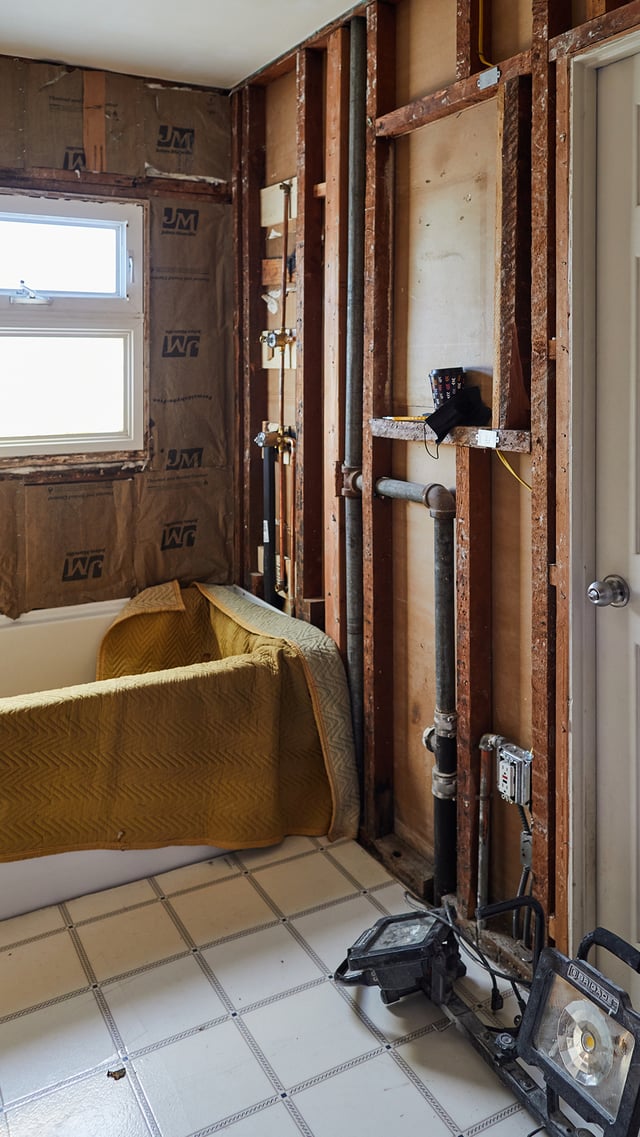
Process
Gutting a Bathroom: What It Entails, Costs & Timeline
07.15.2025
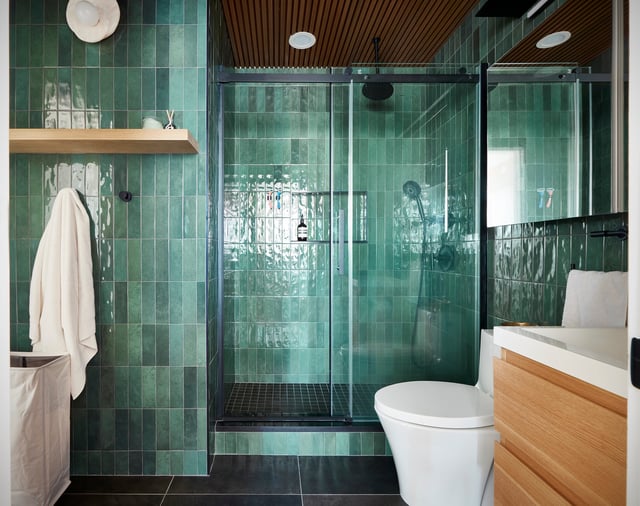
Remodeling
Does Homeowners Insurance Cover Renovations?
05.22.2025
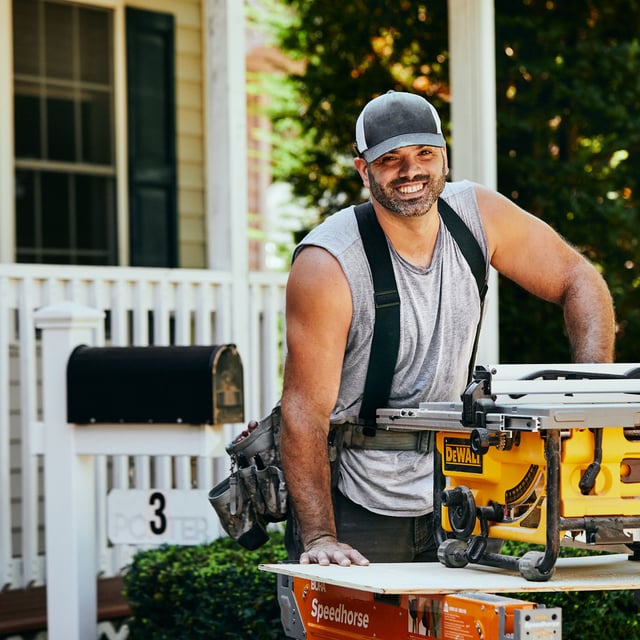
Remodeling
What’s the Difference Between a Home Renovation and a Remodel?
05.22.2025
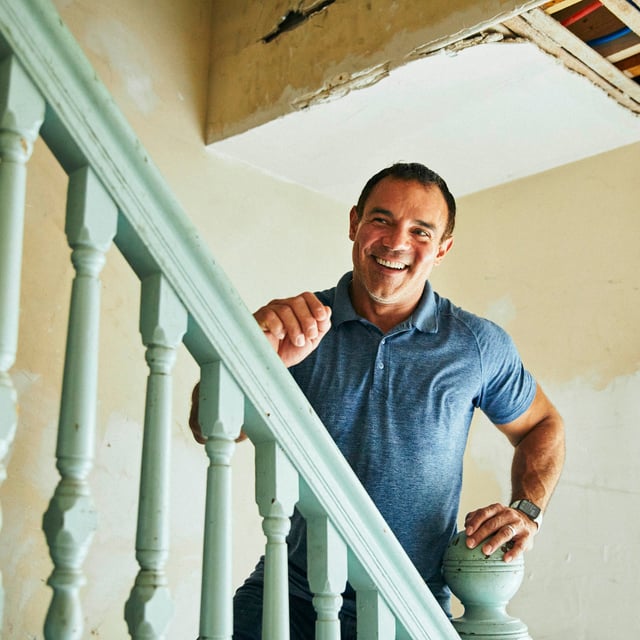
Remodeling
How to Renovate in Brooklyn
05.22.2025
Renovate confidently